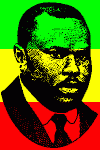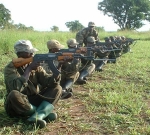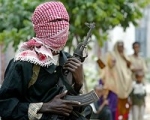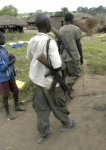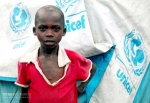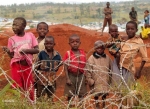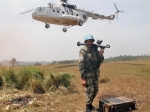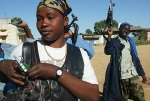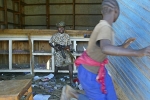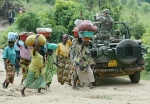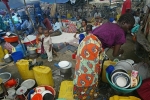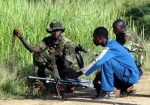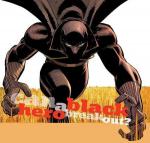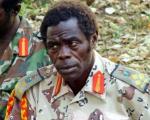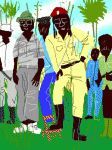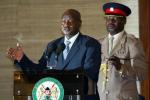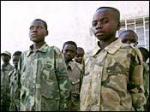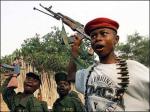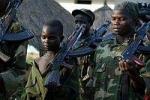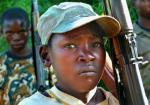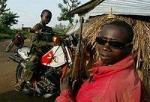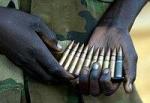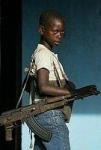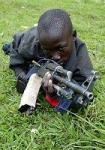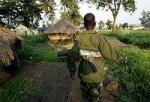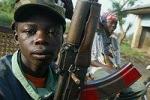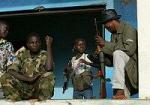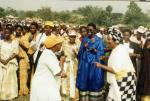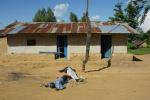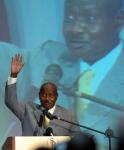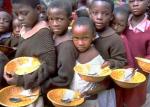By Paul Hill, Jr.
Where have we as Africans born on the Western Hemisphere gone astray? And who should be remembered and considered as a point of reference and model for Black and Non-Black members of the planetary underclass?
What is our condition? Thirteen decades have passed since emancipation, and half the Black Men between twenty-four and thirty-five are without full-time employment. One Black Man graduates from college for every one hundred who go to jail. Almost half of Black children live in poverty. With such conditions the movement has degenerated to a series of endless non-strategic marches and intellectual meandering by dream teams and HNIC’S.
What lessons and examples of leadership and movements of the past have we forgotten and not built upon?
Marcus Garvey and the Black liberation movement he founded are largely forgotten today. But Garvey and his movement constitute one of the most important, innovative, and original of all contributions to the struggle for Black and African liberation. Moreover, in the current period of decline in the world economic culture, with its inevitable concomitant revival of issues of class and race, Garvey and his movement can provide powerful inspiration and lessons for both Black and Non-Black members of the planetary under and working classes.
Marcus Garvey was born in 1887 in Jamaica. He worked as a laborer organizer in various Caribbean countries but initially found only limited success in organizing the Black working class. Visiting Britain in 1912, Garvey came in contact there with Black African intellectuals. He thereupon developed a powerful and unique model of Pan-Negro liberation on the basis of Africa as the Israel of Black people. Garvey’s model 1) viewed Black people as a single worldwide community, whose original home had been in Africa; and 2) called for total de-colonization of Africa, its unification as a single state, and its recognition as spiritual center and planetary home for Black people wherever they might be on the planet. Just as Jews who at that time had no homeland must free Palestine to find their own place in the world, Garvey argued that Blacks must free Africa to find their freedom in the world. Having been dispersed by European colonialism and slavery into a ‘Black Diaspora’, Black people must return spiritually - and in many cases physically - to their life in Africa. In Garvey’s vision, Africa was to have the same centrality, with the same religious theme of exile into slavery and return, that Israel has for the Jews.
Organizing U.N.I.A.
Upon returning to Kingston, Jamaica Garvey was fired with this vision of universal, ‘African-centered’, Negro liberation. He began working with friends to enact the vision by developing U.N.I.A. - The Universal Negro Improvement Association. The first chapters of U.N.I.A. were established in Jamaica and other Caribbean countries in 1914. But while visiting the U.S. in 1916 Garvey began to build chapters of U.N.I.A. there and gradually found that his vision struck a deep positive resonance among US Black people. The center of the movement - and Garvey himself - shortly gravitated to the US From there the movement developed rapidly and on a virtually planetary scale, with several thousand chapters being established in the US, Europe, the Caribbean, Africa, and elsewhere.
Black people in the US were particularly responsive to Garvey’s vision. They resonated to his internationalist theme - the theme that all Black people were members of one mighty international race stretching form the Black urban ghettos and sharecroppers shacks of America to the sugar workers of the Caribbean and the tribes people of Africa; they related to his view that all Black oppression flowed from common sources in the European conquest and colonization of Africa and the forcible dispersal and murder of millions of Black Africans by European enslavement; they rallied to his practical program for immediate steps linking the liberation of Black Americans with the liberation of Africa; and they found new dignity and understanding of their place in the world through his conception of Africa as the natural spiritual center and home of Black people.
A New World For Black People
U.N.I.A. was for a time extremely successful in organizing itself as a new cultural, economic, social, and political world for Black people. Many U.N.I.A. chapters, at least in the US, were massive in character, with total movement membership peaking in the early 1920's at several hundred thousand. In many US cities ‘Liberty Halls’, as the movement’s central headquarters were called, sprang up. Within its chapters U.N.I.A. successfully organized: a) Black women’s organization, b) musical groups, c) religious organizations including ‘the African Orthodox Church’, d) an internationally distributed newspaper ‘The Negro World’, 3) the ‘Black Cross’ Nurses, and other specialized divisions as well. Photographs from the period show such sights as Garvey paramilitary troops parading through the neighborhood; brigades of ‘Black Cross Nurses’ passing in review; as well as large conclaves and gatherings at the Harlem Hall. U.N.I.A. members also successfully developed their own Black economic co-operatives in various American cities and southern rural communities, and they began the collection of funds for purchase of passenger ships for ‘the Black Star Lines’, a shipping company whose mandate was to take Black people who desired repatriation back to Africa. Meanwhile, U.N.I.A. laborer organizers in the Caribbean successfully organized a number of unions in sectors of the work force consisting largely of Black people. Moreover, in an era when male dominance was almost universal in mixed gender organizations whether Black or otherwise, women - including Garvey’s own wife - were unusually prominent in the U.N.I.A. movement and occupied a number of important positions. The ‘women’s page’ of the U.N.I.A. Paper, edited by Garvey’s wife Amy Jacques Garvey, spurned news of cocktail parties and bridge games, then standard on women’s pages. It favored instead articles on such topics as African and Asian women liberating themselves from male bondage; articles encouraging women to fully develop their individuality; articles extolling women as harder workers then men; and articles criticizing Black men for not working hard enough to provide security for their families.
Combining Political and Cultural Liberation
Garvey’s movement appealed strongly to ordinary Black people. It appealed, that is, to the ‘field Negro’s’ - to the residents of the northern US ghettos, and to the southern class of poor Black farmers and workers. It likewise appealed to the oppressed and impoverished Black people of the third world. Its appeal was less effective with the ‘house Negro’s’ of the Black educated classes. This stratum was generally more attracted to the work of the National Association for the Advancement of Colored People, and the work of activists such as Dr. W.E.B. Dubois.
One of Garveyism’s greatest appeals to ordinary Black people, an appeal which Black liberation groups of the 1960's were unable to duplicate, lay in fully combining within one organization ‘Black liberation groups of the 1960's were unable to duplicate, lay in fully combining within one organization ‘Black political liberation’ (liberation concerned with institutional change and the struggle for Black social, political, and in the case of Africa anti-imperialist liberation) with "Black cultural liberation’ (liberation concerned with Black identity, Black personal life, and Black contributions in the arts). The educated Negroes of the 1960's were unable to duplicate, lay in fully combining within one organization ‘Black political liberation’ (liberation concerned with institutional change and the struggle for Black social, political, and in the case of Africa anti-imperialist liberation) with ‘Black cultural liberation’ (liberation concerned with Black identity, Black personal life, and Black contributions in the arts). The ‘educated Negro organizations’ tended to spurn the new popular Black cultural forms such as jazz as marks of ignorance. But Garvey’s organization embraced those very forms - jazz was frequently played at U.N.I.A. meetings - as a means of building the new positive Black identity. Moreover, the central "Liberty Hall’ of the movement, located in the Black Neighborhood of Harlem, was closely tied to jazz.
Global Scope of U.N.I.A.
U.N.I.A. - The Universal Negro Improvement Association - was expanding not only in the US but around the world from 1916 through 1923. By 1920 the movement felt strong enough to convene a world convention representing Black people. In the words of one of Garvey’s biographers, Theodore G. Vincent, "Never before and never since has there been an assembly of Black people to match the convention of 1920." The convention was a truly planetary affair, with representation of the Black masses from around the world. It took place in New York City with approximately 2,000 delegates and other members from U.N.I.A. Chapters in 25 countries on four continents. The convention drew up and passed a charter declaring that Africa must be granted freedom as a unified independent state, and establishing a pro-tem ‘African government’ to which all Black people, where ever they might be, were to be loyal. Precepts of the charter included the demand for an end to all forced segregation or discrimination against Black people in housing, employment, and access to public facilities; an end to European colonialism in Africa; and the stipulation that no Black person should be inducted for military service or war by any nation and - in any case - was not obliged to serve, without the consent and approval of the Black world government. Chosen as titular head of the new Black world government as the mayor of Monrovia, one of the delegates to the convention. The choice was significant, as Monrovia was the capital of Liberia, which was then one of only two independent Black African states. Finally, the convention chose Garvey as president of the new pro-tem Black world state.
Stressing Self-Reliance
Garveyism stressed economic and cultural self-reliance of Black people, and the importance of separating themselves intellectually, spiritually, and socially from the White European society that oppressed them. Garvey taught that Blacks should, for example, develop their own literature while taking the best from white literature. He stressed, however, that Black people must read white literature critically, with careful attention to preventing racist denigration of Black people from entering their minds subconsciously. At the same Garvey was fundamentally non-racist, stating that all races should live in equality, peace, and harmony, although he at times strayed over the line to anti-Semitism in some of his writings of the early 1930's.
As a supreme protagonist of Black people, Garvey was not afraid to bluntly criticize his people for their faults. He stressed that the White race had risen to dominance partly through self-discipline and hard work and that in order to win their freedom - Black people must do the same. One unifying thread of his approach was the constant thrust towards full human dignity for all Black people.
Decline of U.N.I.A.
From 1923 or 1924 onwards Garveyism went into decline. This decline was partly due to internal contradictions, faction fights, and personality conflicts within the organization; partly to a reversal of policy by the African country of Liberia which had tentatively agreed to accept Blacks who wanted to resettle in Africa but then reversed itself; and partly due to persecution by the US government and by other governments of the movement.
Garvey himself was imprisoned in 1923 by the US Government for alleged fraud in connection with supposed misappropriation of funds related to the Black Star Lines. The evidence against him was of dubious character, however, and he was pardoned by the president of the United States in 1927, before the completion of his jail term. This pardon is thought to have eventuated from pressure brought to bear within the government by Black federal civil servants. Upon his release, Garvey was immediately deported to Jamaica. He was never allowed to set foot in the US again. This enforced absence accounts in part of the decline of the movement.
Enduring Influence of Garvey and U.N.I.A.
By the mid 1930's, at the latest, Garveyism had disappeared as an effective organized force. But it remains to this day the largest organized mass-based movement of Black people - and by far the most internationalist one - to ever be established in the US Moreover, its influence is still felt in a number of areas. Elijah Mohammed’s Nation of Islam - popularly known as ‘the Black Muslims - and a number of other Black nationalist organizations which began during the 1930's were, to a great extent, ‘Neo-Garveyist’ movements. These movements attracted many thousands of former Garvey members, although they generally offered far less cultural and political breadth and less humanist universality than the original Garveyist movement. In addition, Garvey’s writings are known to have influenced a number of significant leaders of the African independence movement. Kenya’s revolutionary leader and first president, Jomo Kenyata, considered himself a member of U.N.I.A. Kenyan laborer leader Tom Mboya" ...followed very closely the writings and speeches of Marcus Garvey." Ghana’s independence leader and first national leader Kwame Nkrumah said: "I think that of all the literature I studied, the book that did more than any other to fire my enthusiasm was the philosophy of Marcus Garvey published by his wife".
Among other African leaders who admired and considered themselves indebted to Marcus Garvey were Dr. Nnamdi Azikiwe, the first president of Nigeria; President Kenneth Kaunda of Zambia; and Felix Eboue from the Central African Republic. Moreover, the Jamaican Rasa-Fabians owe their origins to Garvey, who prophesied in Jamaica that ‘a Black king shall arise in Africa’. This king was thought - by those who became ‘Rasa’), and this together with Garvey’s heady mixture of Africa-as-Black-Israel led to the formation of Rasa Farianism. Finally, no less a figure than Malcolm X credited Garvey as a signal source for Black liberation, stating that "Every time you see another nation on the African continent become independent, you know that Marcus Garvey is alive!...All the freedom movements that are taking place right here in America today were initiated by the work and teachings of Marcus Garvey."
The Legacy of U.N.I.A. and Garvey
Garvey’s movement was the largest mass-movement of Black people ever assembled in the United States. This movement was ahead of all Black organizations of its day - and of ours - in the all-sided totality of cultural, political, economic, and spiritual liberation for Black people to which it aspired, and at least within its own ranks began to achieve. So great was this totality that Garveyism has been described a ‘a Black civic religion’. In addition, one of the movement’s greatest strengths was internationalism. The Garveyite movement saw that black people - like the Jews - constituted a single planetary people who had been forcibly removed from their homeland, sold into slavery, and scattered into a ‘Black Diaspora’.
In the present period of economic cultural decline, the cultural totality and planetary scope of the Garveyist movement is a model worth remembering for both Black and Non-Black members of the planetary underclass.
One hundred and fifteen years ago God, as it were, sent his begotten son, Marcus
Mosiah Garvey, to redeem his people by showing them the only way towards salvation. For reasons unknown only to the Almighty, the littlle town of St. Ann's bay, situated on the north coast of Jamaica, was chosen as the birthplace of this great prophet, teacher and leader. The date of this modern miracle was August 17th, 1887. Garvey was a man who, in retrospect, was far ahead of his time. This is clearly proven by the fact that his ideologies have resurfaaced today and could be considered a major factor in the liberation of African peoples the world over. Garvey sought to revive the spirit of Black people from despair to hope; from lethargy to positive action; from fear to courage; from inertia to assertiveness; from anti-discrimination dodges to manly confrontation. He gave them goals possible to man, the highest creation of God, because he believed with all his heart in the innate abilities of the African race. On August 1, 1914, Garvey launched the Universal Negro Improvement Association and African Communities League (U.N.I.A & A.C.L) in Jamaica, an organization to advocate the unity and blending of all Negroes into one strong, healthy race.
After the first World War, there was a resurgence of the Ku Klux Klan influence in the United States - another decade of racial hatred and open lawlessness had set in, in which Negroes were again prominent among the victims. African people were by this time more than ready for a Moses, and only a Black Man could express the depth of their feelings. Marcus Garvey settled that question for thousands by forming the U.S. branch of the U.N.I.A. & A.C.L. in June 1917.
On June 10, 1940, at the age of 53, MARCUS MOSIAH GARVEY died in London of a severe stroke without having set foot in Africa, but his impact there was tremendous. He left a rich legacy of history for us to study and utilize in our continued quest for independence and liberation as a people.
Brief History of Some of The many Afrikan Heroes that Established the Path that Marcus Garvey Followed.
Prince Hall. Born in 1748, started the Afrikan Lodge in 1776. Fought against the Massachusetts slave trade.
Olaudah Equiano & Ottobah Cugoano. First Afrikans to write books in english in 1789 promoting emancipation of Afrikans.
Bookman Dutty. Originator of the Haitian Revolution, 1792.
Toussaint L'Ouverture and Henri Christophe were military leaders (generals) in Haitian revolution.
Jean-Jacques Dessalines. Declared Haiti free in 1804.
Gabriel Prosser. Organized rebellion of 40,000 slaves in Virginia in the 1800s.
Paul Cuffe. Formed Friendly Society for the Emigration of Free Afrikans in 1811 and transported Afrikans to Sierra Leone at own expense.
Chaka Zulu. Greatest Afrikan warrior, general, military genius. Started consolidation of Southern Afrika in 1812.
Richard Allen. Formed Afrikan Methodist Episcopal Church in 1816.
Absalom Jones. Founder of the Free Afrikans Society and The Sons of Afrikans Society.
John B. Russwurm. Founded and edited 1st black newspaper in US, The Freedom's Journal in 1826. Repatriated to Liberia in 1829.
David Walker. 1829 wrote book titled, Appeal to the "Coloured" Citizens of the World. Philosophical & spiritual father of all who followed the revolutionary path of radical resistance.
Samuel "Daddy" Sharpe. Leader of one of the greatest rebellions in Jamaica, the Baptist War in 1831-32 which contributed to emancipation. Executed in 1833 by british.
H.H. Garnett. Founder of African Civilization Society. 1843 convention called for slaves to revolt.
Frederick Douglas. Greatest spokes-person of his day for abolition of slavery. Autobiography written in 1845, A Narrative of the Life of Frederick Douglas: An American Slave.
Martin Delaney. Father of Black Nationalism, co-edited the North Star with Frederick Douglas and in 1859 lead an exploratory party of free Afrikans to Afrika. Made agreements with Nigerian kings for the resettlement of Afrikans.
Harriet Tubman. Born a slave to become leader of underground railroad in 1850s.
E. W. Blyden. 1832-1912; Returned to Afrika in 1851. President of Liberia College. Wrote in 1887, Islam, Christianity & the Negro Race.
JA JA. Merchant prince of Nigeria. Deported from Nigeria in 1860 by the british because he controlled the palm oil industry.
Paul Bogle. Leader of rebellion in Jamaica in 1865.
The Fanti Federation. 1865, Ghana. Wrote constitution and petitioned the british for the independence of the Gold Coast.
Sojourner Truth. Preacher, abolitionist and lecturer. Fought for better educational opportunities for Afrikans following american civil war until death in 1883.
Bishop Henry McNeal Turner. Greatest advocate of repatriation before Garvey. 1870.
Samory Toure. Brilliant military general who fought successfully against the french in Sudan for 18 years. Died in exile in 1900.
"The Mahidi", Mohammed Ahmed. Freed Sudan from the british before his death in 1885.
Hubert Harrison. Founder of the Liberty League and influential on Garvey's philosophy.
Dr Robert Love. Publisher of the Jamaica Advocate 1894-1905, militant journalist. Gave Garvey elocution lessons. Anti-colonial fighter. Promoted race-consciousness.
Prempeh. King of the Ashanti; exiled by british in 1896.
Queen Asantewa. Lead the Ya Asantewa War in 1900 against the british in Ghana.
Booker T. Washington. Founder of Tuskegee Institute. Wrote, Up From Slavery, published in 1901.

